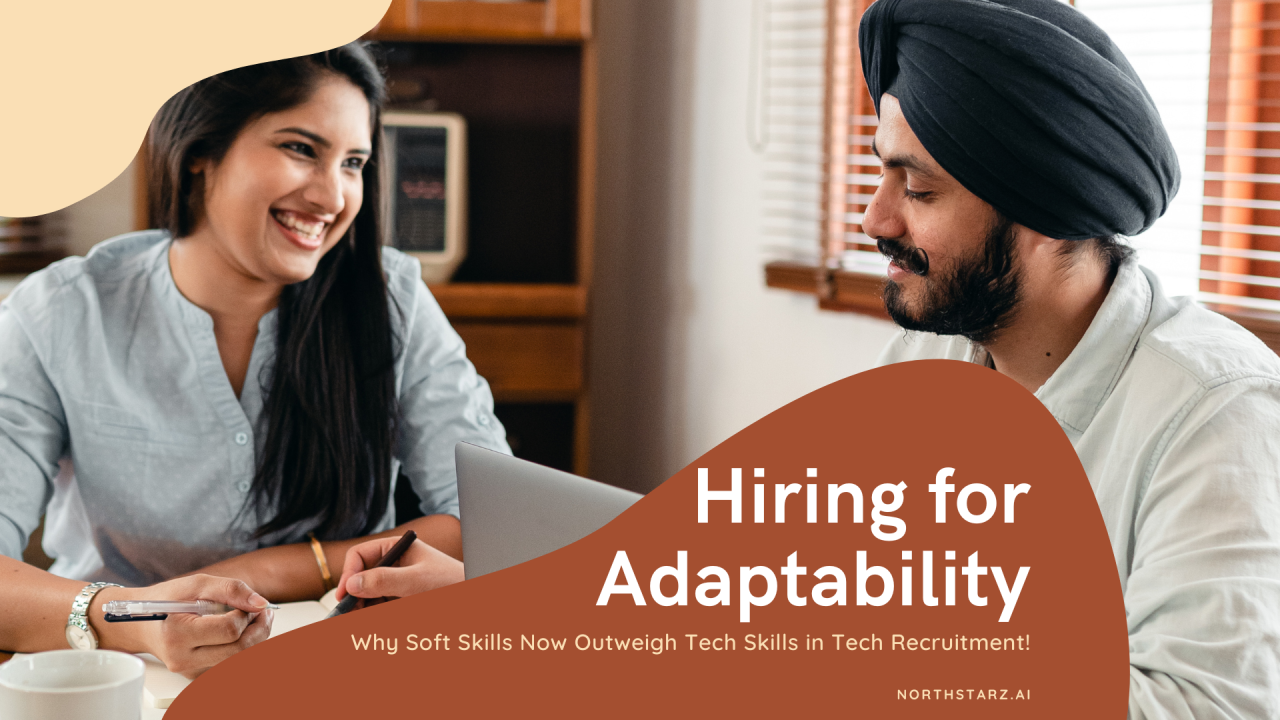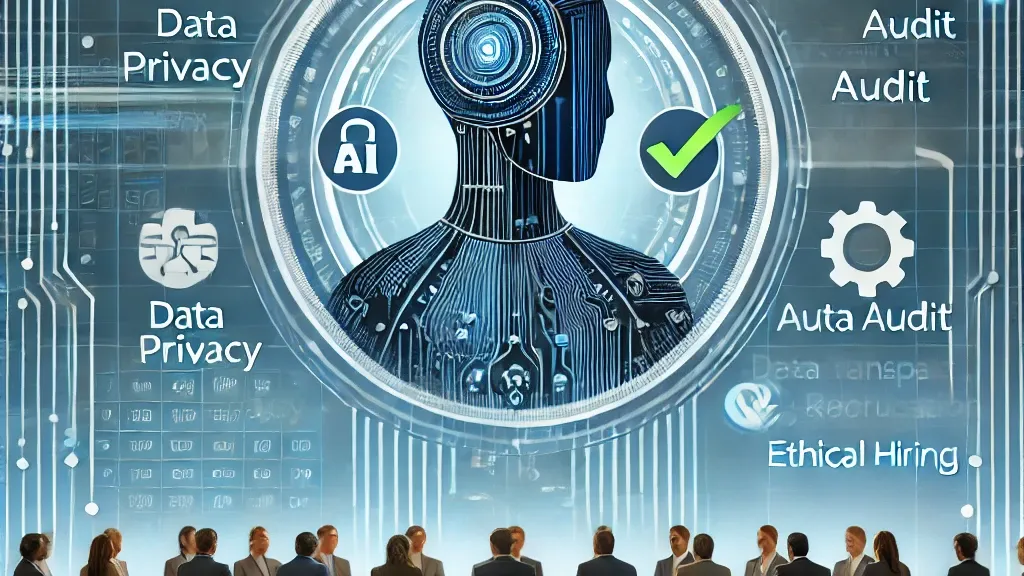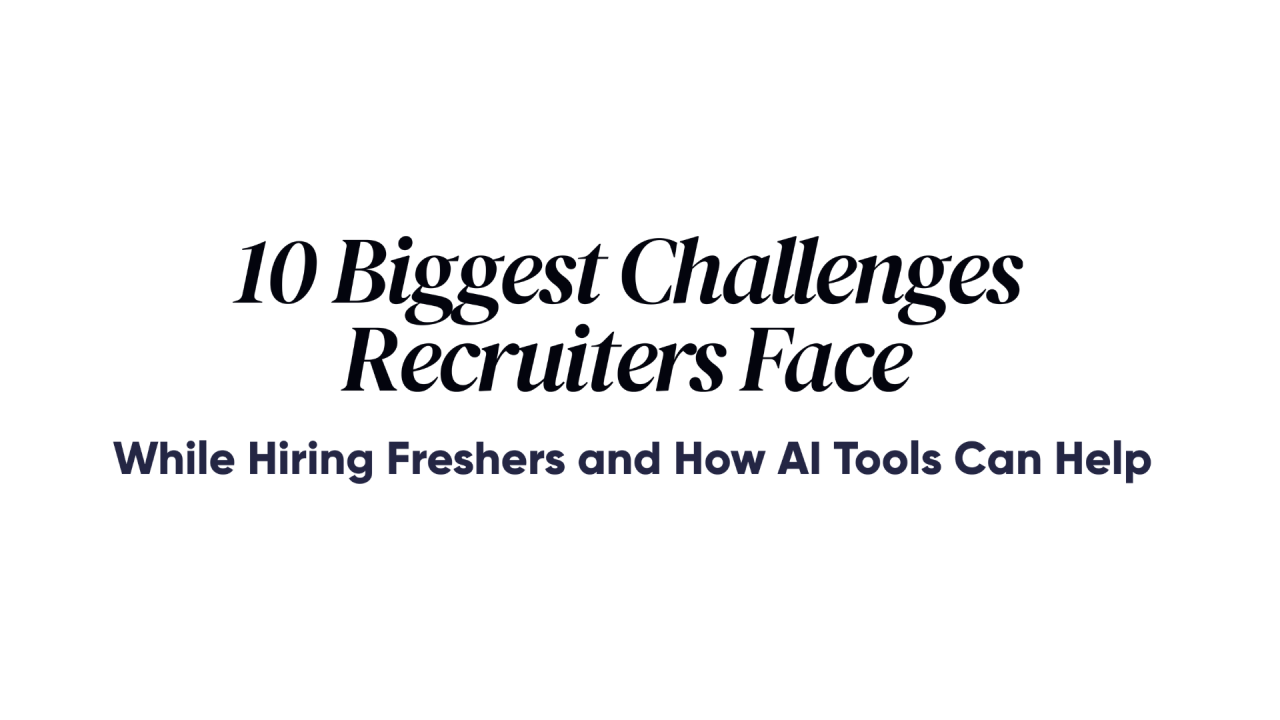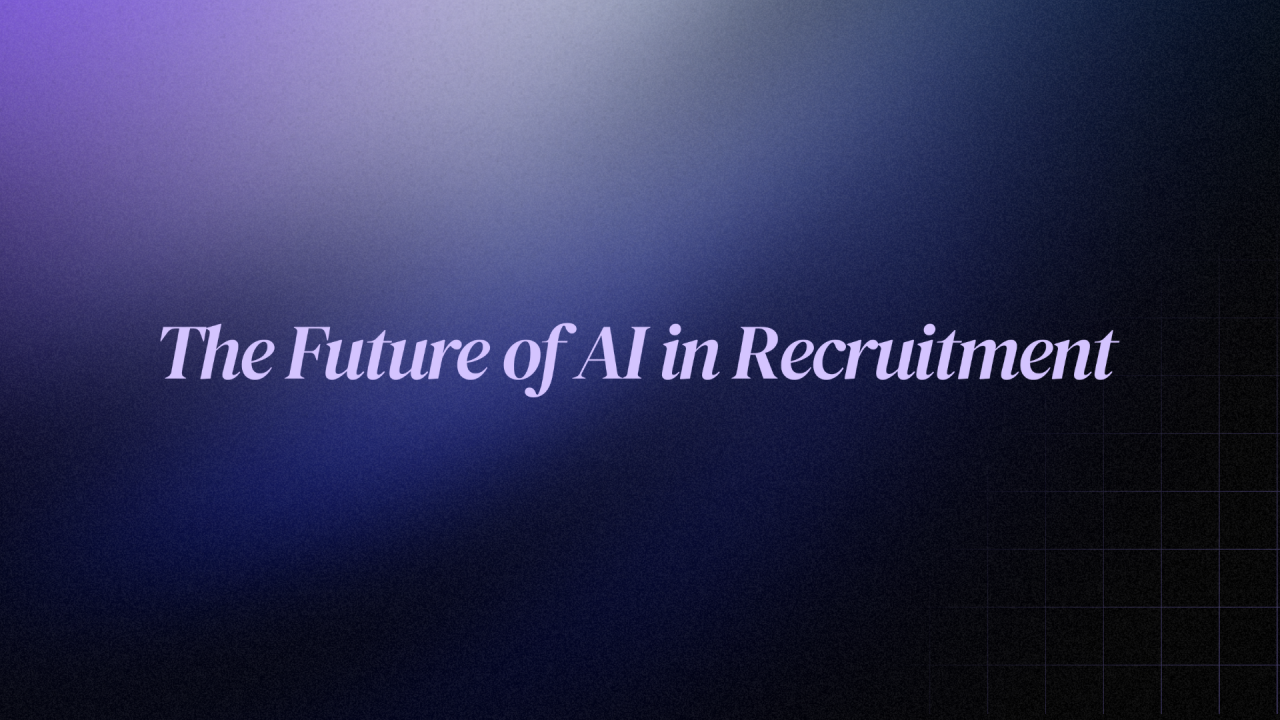Introduction: In today’s fast-paced tech industry, hiring managers are discovering that “hard” technical abilities alone aren’t enough. An overwhelming 92% of talent acquisition leaders say soft skills are as important as or more important than technical skills when evaluating candidates (linkedin.com). Skills like adaptability, collaboration, and innovation have become the critical differentiators that drive long-term success on the job. This shift is redefining how companies hire – especially in IT and technology – as employers place new emphasis on human skills that machines can’t easily replicate.
The Rise of Soft Skills Over Hard Skills in Tech Hiring
Soft skills have eclipsed technical expertise as a hiring priority. According to LinkedIn’s global talent trends, 69% of U.S. executives plan to prioritize candidates with soft skills (particularly transferable skills like adaptability that let employees move nimbly across roles – peoplescout.com). Similarly, a Wonderlic study found that 93% of hiring leaders consider soft skills “essential” – even outweighing technical qualifications for many employers (linkedin.com). The reason is simple: while technical know-how has a shorter shelf-life, soft skills are enduring and applicable across evolving roles and technologies.
- Bad hires often lack soft skills: It’s telling that 89% of hiring failures stem from missing critical soft skills, not technical incompetence. An engineer might ace coding tests but struggle if they can’t communicate or adapt to change.
- Soft skills fuel long-term success: Employees with strong soft skills tend to advance faster in their careers. LinkedIn data shows that professionals who exhibit both technical and soft skills are promoted 8% faster than those strong only in hard skills (HRdrive.com). Teamwork, problem-solving, and communication skills had the strongest links to quicker promotions – up to 11% faster promotion rates for those who excel in these areas. The takeaway for employers: hiring for soft skills pays off in better leadership pipelines and long-term performance.
HR leaders in tech have taken notice. Equally qualified candidates are now often decided by their soft skill edge, (linkedin.com) as organizations recognise that qualities like creativity, collaboration, and learning agility drive innovation more than any one tool or programming language. As one HR expert summed it up, “soft skills are the differentiating factor when choosing between equally qualified candidates.” Today’s most sought-after hires are versatile people who can communicate, think critically, and thrive amid rapid change.
Why Adaptability and Collaboration Matter More Than Ever
In the fast-evolving technology sector, the ability to adapt, collaborate, and innovate isn’t just a nice-to-have – it’s a survival skill. LinkedIn’s CEO Jeff Weiner has noted that the need for interpersonal skills “outpaces the need for technical skills”, calling communication “the No. 1 skills gap” in today’s workforce (bhsg.com). Technical prowess alone can’t drive projects forward if employees can’t work well in teams or adjust to new challenges.
Leading CEOs echo this sentiment. Microsoft chief Satya Nadella even argues that so-called “soft” skills like empathy are the hardest and most critical skills: “Empathy is not a soft skill. In fact, it’s the hardest skill we learn – to relate to the world and people” (nasdaq.com ). Nadella credits an empathetic, collaborative mindset as key to driving innovation, saying that meeting unarticulated customer needs “is about empathy” at its core. In practice, an adaptable, empathetic developer is more likely to build user-friendly solutions and respond to market shifts than a heads-down coder who refuses to deviate from their initial plan.
Collaboration has similarly become mission-critical. As projects grow more complex and cross-functional, no engineer or analyst works in a vacuum. Google’s research on effective teams found psychological safety and communication outweigh individual genius. It’s no wonder that business leaders frequently repeat the mantra: “You don’t hire for skills alone, you hire for attitude.” A positive, team-oriented attitude often beats pure technical brilliance over the long run. In short, companies have learned that a culture of adaptability and teamwork fosters the innovation needed to stay competitive.
Innovative Hiring Practices to Uncover “Soft” Traits
Recognising the importance of soft skills, forward-looking employers are reinventing their hiring process. Traditional Q&A interviews and cookie-cutter coding tests are giving way to creative, scenario-based evaluations that reveal how candidates behave in real situations:
- Behavioural and situational interviews: Rather than hypothetical questions, companies use behavioural prompts like “Tell me about a time you had to adapt to an unexpected change”. Research shows that structured behavioural interviews predict job performance far better than unstructured chats (rework.withgoogle.com). By focusing on past actions, interviewers get tangible evidence of traits like resilience, teamwork, or problem-solving under pressure. As Google’s hiring team found, structured interviews not only increase predictive accuracy but also feel fairer and more consistent for candidates
- Group exercises and role-play simulations: Some organizations run collaborative simulations – for example, having a group of candidates work together on a mock project or case study. Group interviews and live role-plays can reveal soft skills in action, highlighting who steps up as a leader, who listens well, and how individuals interact in a team setting (vervoe.com). These simulations paint a clearer picture of a candidate’s adaptability and interpersonal style than any resume ever could.
- Job simulations and case assignments: To gauge innovation and practical thinking, employers are using job-related assignments or hackathons during hiring. Candidates might be given a real-world problem to solve or asked to present a plan for a fictional scenario. This not only tests their technical skill but also their creativity, communication, and grace under pressure. Such work-sample tests provide a 360° view of how a person would perform the job tasks.
- Gamified assessments: Some companies even employ game-based assessments (like Pymetrics’ neuroscience games) to measure traits such as risk-taking, learning agility, or emotional intelligence. These innovative tools put candidates in engaging scenarios (for instance, popping virtual balloons to assess risk preference) and use data to infer soft-skill strengths. It’s a novel way to surface qualities that are hard to discuss in a traditional interview, and candidates often find it more engaging than answering yet another interview question.
By incorporating these techniques, employers report more robust evaluations of candidate fit. Structured, scenario-based hiring not only uncovers soft skills better – it also reduces biases. Interviewers are less likely to make snap judgements based on charisma or shared hobbies when everyone faces the same scenarios and is scored against the same rubric. In short, hiring becomes more about merit and mindset, and less about gut feel (rework.withgoogle.com). Companies like Google have embraced this structured approach and seen improvements in both candidate experience and quality of hire. For any tech company seeking innovators and team players, these modern methods are proving far more effective than the old stress interrogations or brainteaser questions of the past.
Automation and AI: Scaling Soft Skill Assessment and Reducing Bias
With soft skills taking centre stage, recruiters are also turning to technology – ironically, to hire for human qualities. Automation and AI tools can optimize soft-skill screening in ways that are faster and often fairer than traditional methods:
- AI-powered screening and assessments: Intelligent algorithms can sift through applications for signals of soft skills (such as leadership roles or volunteer work indicating teamwork), and some platforms even analyse video interviews for communication style and enthusiasm. According to recent industry insights, increased use of AI for resume screening and first-round assessments is already “driving recruiter efficiencies, reducing potential unconscious bias, and improving quality of hire” (peoplescout.com). By letting AI handle the initial scan of thousands of resumes or recorded interviews, companies can save enormous time while ensuring no promising candidate is overlooked due to human bias or fatigue.
- Chatbot interviews and skill tests: AI chatbots are now conducting initial interview rounds by asking a set of standardised questions via text or voice. Candidates might have a casual conversation with a bot about their work style or how they’d handle a work scenario. The AI evaluates responses instantly, freeing up recruiters from hours of phone screens. The result? Hiring managers get a shortlist of vetted candidates and can invest their time in deeper, human assessments later in the process.
- Case study: Unilever’s AI-driven hiring success. Global consumer goods company Unilever transformed its entry-level hiring by leveraging AI assessments – and achieved astounding results. Applicants play a series of neuroscience-based games (measuring traits like memory and risk-taking) and record video interviews, which are then analysed by AI. The outcome was a 75% reduction in recruiter screening time, cutting the average time-to-hire from four months to just four weeks. Unilever also reported saving about 50,000 hours of candidate and recruiter time in one year (businessinsider.com). Even more impressively, these unbiased, data-driven screens yielded the most diverse class of new hires to date for the company, significantly increasing the hiring of nontraditional and underrepresented candidates. By removing unconscious bias from the early stages, AI helped widen the talent pool and ensure the focus was on candidates’ skills and potential.
- Consistent, fair evaluations at scale: A major advantage of AI assessments is consistency. Every candidate gets the same standardised evaluation, whether it’s an online situational judgment test or an algorithm scoring their video interview. This uniformity means a level playing field for candidates and decisions based on data, not whim. Of course, human judgement remains vital in the final rounds, but automation handles the heavy lifting of screening with an impartial eye.
Importantly, AI is a complement to, not a replacement for, human-centric hiring. The best results come when recruiters use these tools to augment their decision-making – for example, using AI to flag high-potential applicants or hidden gems that merit a closer look. By automating the repetitive and bias-prone steps, talent teams can focus on what they do best: engaging with people, digging into meaningful soft-skill indicators, and ultimately hiring for potential, not just past credentials.
Conclusion: Building a Future-Ready Workforce with Soft Skills
The message from research and industry leaders is loud and clear: soft skills are the new bedrock of hiring for long-term success. In tech especially, where the only constant is change, companies need adaptable, collaborative, innovative thinkers who can grow into tomorrow’s challenges. Prioritising these human skills in recruitment doesn’t mean technical skills no longer matter – rather, it means that the best hires are those who combine solid technical foundations with the ability to communicate, learn, and lead in dynamic environments.
For HR teams and hiring managers, the practical takeaway is to update your hiring playbook. Start measuring what truly matters: incorporate soft skill assessments, tweak interviews to probe adaptability and teamwork, and consider AI-driven tools to scale these efforts efficiently. The payoff will be hires who not only perform well today but also drive your organisation’s growth and innovation for years to come.
As businesses navigate the future of work, partners like Northstarz.AI are helping them stay ahead of the curve. By blending advanced AI-driven hiring solutions with a deep understanding of human capital trends, Northstarz.AI enables organizations to identify those high-potential candidates who might otherwise be overlooked – the creative problem-solvers, the empathetic collaborators, and the agile learners. In a world where technology evolves overnight, it’s these uniquely human capabilities that will future-proof your workforce.
Empowering your hiring with a soft-skills lens isn’t just a trend; it’s a strategic shift to build resilient, innovative teams. The companies that embrace this shift – leveraging data, new interview methods, and AI assistance – will be the ones to attract the adaptable, collaborative talent that keeps them at the cutting edge of the tech industry. In the end, hiring for soft skills is about hiring for the future. And in the future, the ability to learn, adapt, and work well with others will remain any organisation’s greatest asset.




